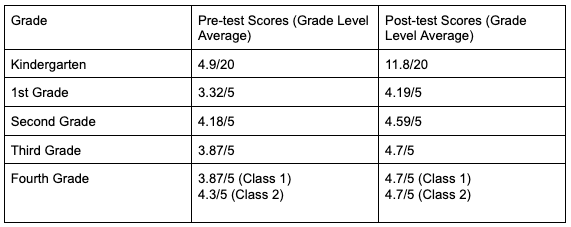An Evaluation of Everyday Speech SEL Curriculum
Conducted by Illinois State University, School of Social Work

The article below was an independent third-party evaluation of Everyday Speech SEL curriculum conducted by Illinois State University, School of Social Work. To protect privacy some names have been removed.
Authors
School of Social Work, Illinois State University May 2023
Ty Taufer, MSW School Social Worker
Zari Gary, MSW Candidate, School Social Work Intern
Evaluation of Everyday Speech SEL – Abstract
This article describes the results of a pilot study conducted to evaluate the effectiveness of the Social and Emotional Learning Curriculum by Everyday Speech in increasing students’ knowledge of healthy social-emotional behavior and increasing their prosocial behaviors.
The study included elementary students (Kindergarten-4th grade) from a rural public school setting in central Illinois. Specific lessons and unit content topics differed between grade levels and progress monitoring tools differed for Kindergarten from the rest of the grades as well.
Social and Emotional knowledge as well as prosocial behaviors were assessed using brief quizzes, in pretest-posttest designs, on content and in the case of Kindergarten only, teacher reports of student behavior on a likert scale by behavior prevalence in pretest-posttest design. Results for all grade levels indicated growth from pretest to posttest, whether for social and emotional knowledge, or for prosocial behaviors, as investigated respectively.
Implications for effective Tier 1 interventions on the District’s overall MTSS program and procedure is discussed as is the importance of social and emotional learning as a prevention and intervention strategy to promote mental health and social competence among students in schools.
Participants and Method
Over an 8-week period, the final quarter of the 2022-2023 academic year, a pilot trial of the Everyday Speech SEL curriculum was provided at no cost to the district by the company, Everyday Speech.
The curriculum was immediately implemented in the time provided and its effectiveness was evaluated to determine the appropriateness of future use within the district as the primary curriculum for SEL, at Tier 1.
Pre-tests were administered to every student in every class who participated in the curriculum, prior to their first lesson of the curriculum. Pre-tests were collected and data scored and analyzed by classroom as well as overall grade level. These pre-tests were provided by Everyday Speech as a part of their curriculum units and means of progress monitoring. These forms consisted of 5 questions pertaining to that respective unit’s content in order to obtain a baseline of student knowledge of social and emotional content prior to exposure to the lessons on that content. Post-tests were identical to the pre-tests and repeated at the end of each unit.
Average scores by classroom and, combined, at grade level were compared between pre and post-tests to determine growth or regression in social-emotional knowledge of the group, as a whole, on average.
Instruction was given to students with this SEL curriculum for the next 7-8 consecutive weeks.
Results of Evaluation of Everyday Speech
Results of the evaluation of the SEL curriculum by Everyday Speech indicate that it is a promising intervention tool for bringing effective SEL instruction to the classroom for all students at Tier 1 in so far as students’ social and emotional knowledge had improved after 8 weeks along with students’ levels of prosocial behavior, as observed by their teachers.
Students whose prosocial behaviors were evaluated before and after the intervention demonstrated great gains in their overall behavior being positive or, “prosocial.”
Students whose social-emotional knowledge was tested before and after the intervention also demonstrated great gains in their understanding and retention of the concepts presented over the course of the 8 weeks.

Discussion
The curriculum demonstrated positive effects across all grade levels. These results support the implementation and faithful use of the curriculum at a Tier 1 level.
Likewise, these findings support the idea that even short interventions (10-20 minutes in duration) every week over a short period of time (7-8 weeks) can help improve students’ understanding of social and emotional concepts as well as their overall behavior.
Furthermore, one classroom was taught entirely by a special education teacher yielding very positive post-test data, indicating that the intervention showed promise even when not directly presented to the class by an SEL professional. This would indicate that teachers presenting this SEL content to their classrooms may also yield positive results and save on the time that these lessons would otherwise require from the social worker throughout the school day, making instructional mode and delivery more versatile and accommodating for staff.
It’s worth noting that if this curriculum were to be adopted and to be implemented with fidelity there would no doubt be a positive impact on the school’s overall MTSS.
We’re backed by 20+ years of research, along with educators and parents across the country.







